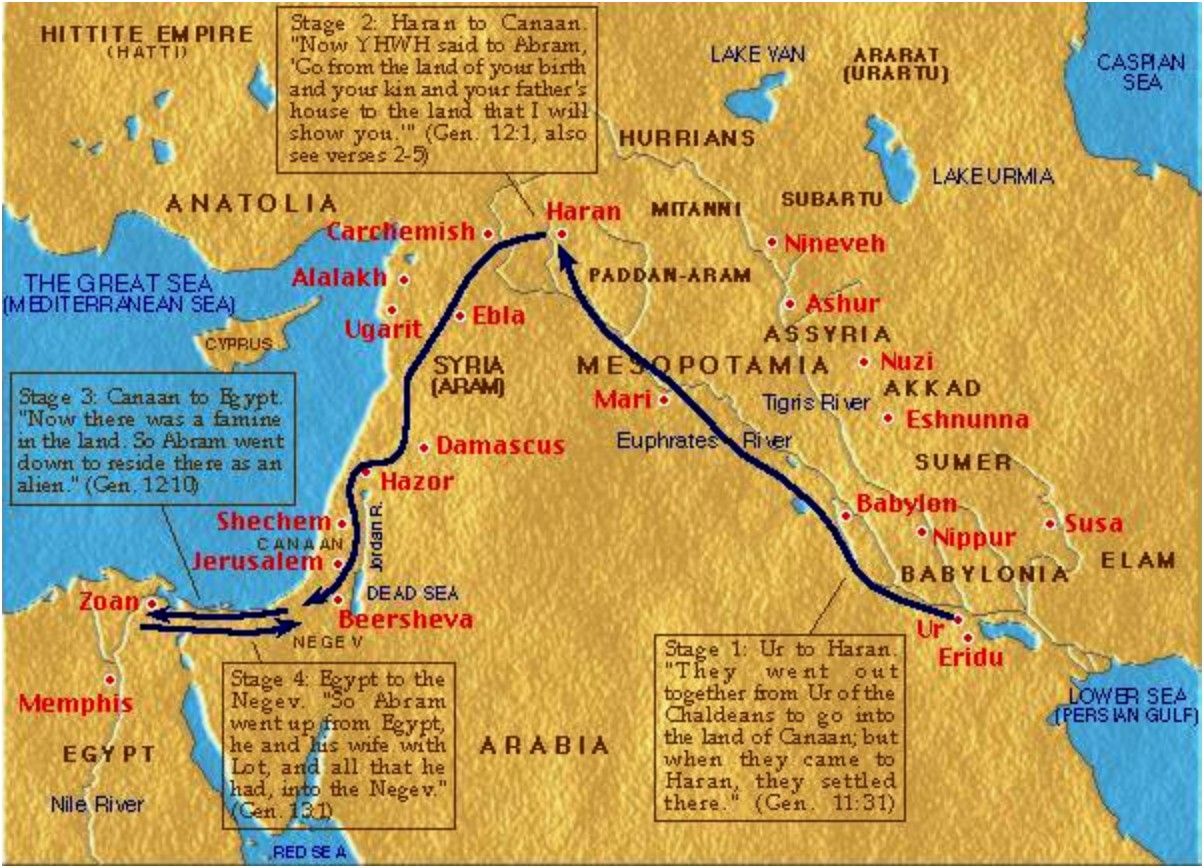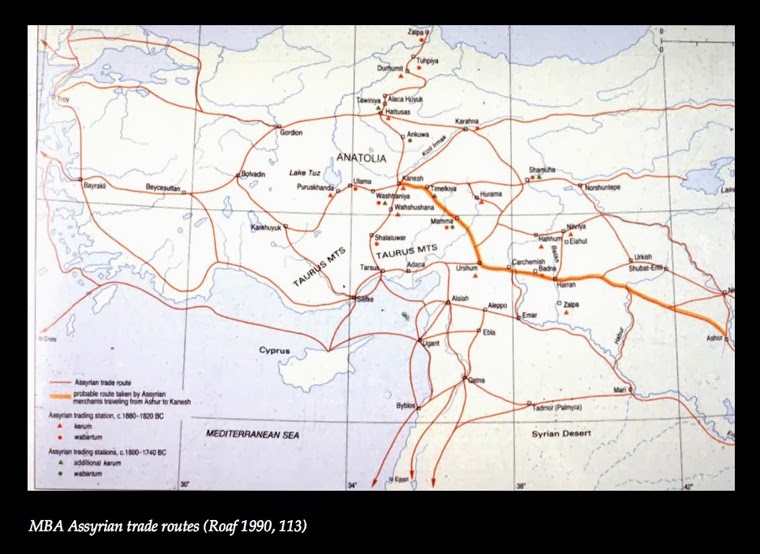- Jul 11, 2018
- 16
- 7
- 45
- Country
- United States
- Faith
- Christian
- Marital Status
- Engaged
Jews, Israelites, and Arabs all trace their descent from Abraham. But where did Abraham come from?
The Bible says Abram's father and brothers traveled from Ur of the Chaldees to Haran. Later Abram and his nephew Lot would venture further into the land of Canaan. But where are those places?
Most maps will show Ur as a city in southern Mesopotamia, near modern Kuwait. Haran is universally agreed to be near the modern border of Syria and Turkey, near the Euphrates river. Canaan is generally assumed to be the southern part of modern Israel, since that is where Abraham ended up later in his story.
This map gives a good visual representation of the common belief since roughly the 1920's, when the famed explorer/archaeologist Sir Leonard Woolley excavated the city of Ur near Kuwait:

The problem is that this path makes no sense. If one is traveling from Ur to Beersheva (as pictured), then this path means you traveled hundreds of miles in the wrong direction. Abraham's family would have had to do that on foot, which would have taken months at minimum and possibly a couple years.
So then, one of these locations must be wrong. But which?
Of the three, Haran is the best historically established, having been excavated archaeologically, and attested in Assyrian, Armenian, Greek, Roman, and Islamic sources, in addition to the Biblical account. Additionally, the Bible makes a point of locating it to the north, as Isaac and Jacob later made pilgrimages back to their historic homeland to find wives from their own tribe.
Canaan is somewhat nebulous. While historically the title refers to the area marked on the map, Biblically it includes all the descendants of Ham's firstborn son Canaan. In modern terms, that's all of Israel, Lebanon, and Syria, plus big chunks of Turkey, Iraq and Jordan. However, the Biblical account is clearer later, giving cities in the Levant that Abraham visited. We know where Abram ended up; the question is where he started.
That just leaves us with Ur. The site marked on the map was undoubtedly a city called Ur, but was it the right Ur? The site marked on the map gained acclaim in the 1920's when British newspapers followed the excavations of the site and linked it to the Biblical account. But, historically there are competing sites, such as Urfa in Turkey, and Urkesh, in Syria. Both are far closer to Harran than the site which is marked in most study Bibles today.
The Bible says Abram's father and brothers traveled from Ur of the Chaldees to Haran. Later Abram and his nephew Lot would venture further into the land of Canaan. But where are those places?
Most maps will show Ur as a city in southern Mesopotamia, near modern Kuwait. Haran is universally agreed to be near the modern border of Syria and Turkey, near the Euphrates river. Canaan is generally assumed to be the southern part of modern Israel, since that is where Abraham ended up later in his story.
This map gives a good visual representation of the common belief since roughly the 1920's, when the famed explorer/archaeologist Sir Leonard Woolley excavated the city of Ur near Kuwait:

The problem is that this path makes no sense. If one is traveling from Ur to Beersheva (as pictured), then this path means you traveled hundreds of miles in the wrong direction. Abraham's family would have had to do that on foot, which would have taken months at minimum and possibly a couple years.
So then, one of these locations must be wrong. But which?
Of the three, Haran is the best historically established, having been excavated archaeologically, and attested in Assyrian, Armenian, Greek, Roman, and Islamic sources, in addition to the Biblical account. Additionally, the Bible makes a point of locating it to the north, as Isaac and Jacob later made pilgrimages back to their historic homeland to find wives from their own tribe.
Canaan is somewhat nebulous. While historically the title refers to the area marked on the map, Biblically it includes all the descendants of Ham's firstborn son Canaan. In modern terms, that's all of Israel, Lebanon, and Syria, plus big chunks of Turkey, Iraq and Jordan. However, the Biblical account is clearer later, giving cities in the Levant that Abraham visited. We know where Abram ended up; the question is where he started.
That just leaves us with Ur. The site marked on the map was undoubtedly a city called Ur, but was it the right Ur? The site marked on the map gained acclaim in the 1920's when British newspapers followed the excavations of the site and linked it to the Biblical account. But, historically there are competing sites, such as Urfa in Turkey, and Urkesh, in Syria. Both are far closer to Harran than the site which is marked in most study Bibles today.

